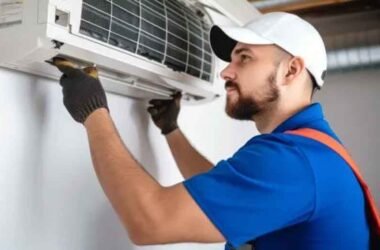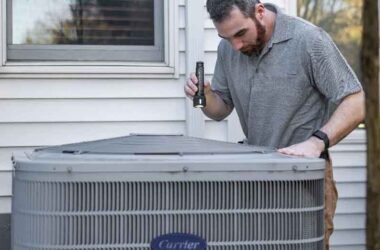Most homeowners rarely think about their plumbing systems until something goes wrong. A leaking faucet, a burst pipe, or a backed-up drain often grabs attention only after it becomes a costly problem.
However, the reality is that most major plumbing issues don’t happen overnight. They begin as small, preventable issues that could easily be detected during routine plumbing inspections. By investing a little time and money into regular inspections, homeowners can avoid expensive repairs, water damage, and even health risks in the long run.
Let’s explore how regular plumbing inspections can save you thousands of dollars, extend the lifespan of your system, and keep your home running efficiently.
The True Cost of Ignoring Plumbing Maintenance
When plumbing issues are left unchecked, the damage can escalate quickly. What starts as a small leak under a sink or behind a wall might seem harmless at first, but over time it can lead to significant structural damage. Moisture buildup can weaken drywall, warp flooring, and encourage the growth of mold and mildew. These problems can easily cost thousands to repair.
For example, a slow drip from a hidden pipe might waste hundreds of gallons of water per year, increasing utility bills. If that leak leads to mold growth, homeowners could face not only expensive remediation costs but also potential health issues from exposure to mold spores. Replacing damaged walls or flooring could easily exceed $5,000, while water restoration services can double that amount.
A routine plumbing inspection, on the other hand, typically costs a fraction of that and can catch these small issues before they spiral out of control.
What Happens During a Plumbing Inspection?
A professional plumbing inspection is more than just a quick look under your sink. A qualified plumber uses advanced tools and techniques to check your entire system for leaks, blockages, and potential problem areas.
Here’s what most inspections include:
- Leak detection: Using moisture sensors or infrared cameras, plumbers can identify hidden leaks that aren’t visible to the naked eye.
- Pipe inspection: With video camera technology, professionals can inspect the inside of your pipes to detect buildup, corrosion, or small cracks.
- Water pressure test: Low or high water pressure can indicate a hidden issue, such as a clog or a faulty valve.
- Drain inspection: Drains are checked for blockages, grease buildup, and tree root intrusion.
- Water heater evaluation: Inspectors ensure your water heater is operating efficiently and safely, checking for rust, sediment buildup, and leaks.
- Fixture assessment: Faucets, toilets, and showerheads are tested for proper function and potential water waste.
These steps allow plumbers to detect issues early, giving homeowners peace of mind and the opportunity to plan minor repairs instead of facing emergencies.
Preventing Expensive Water Damage
Water is one of the most destructive forces in a home. It can compromise structural integrity, ruin finishes, and foster mold growth within days. Regular inspections can prevent these disasters by identifying problems such as pinhole leaks, deteriorating seals, or faulty connectors before they cause extensive water damage.
Consider this: A burst pipe can release hundreds of gallons of water in just a few hours. The cost of water damage restoration, including removing soaked materials, drying the space, and replacing damaged items, can range from $3,000 to $10,000 or more. Preventing that burst pipe through early detection during a plumbing inspection might cost under $200.
The savings are clear, and beyond the financial aspect, avoiding the stress and disruption of a plumbing emergency is priceless.
Saving on Utility Bills Through Efficiency
Regular plumbing inspections also play a big role in keeping your water system energy efficient. Leaky faucets, running toilets, or inefficient water heaters can lead to significant increases in water and energy usage.
For instance, a single dripping faucet can waste over 3,000 gallons of water per year. That’s money literally going down the drain. If your water heater is full of sediment or your pipes are corroded, your system has to work harder to deliver hot water, increasing energy costs.
During an inspection, your plumber can recommend upgrades or replacements for outdated components, helping you save on both your water and energy bills. They might also suggest low-flow fixtures or tankless water heaters, which provide additional long-term savings.
Extending the Life of Your Plumbing System
Just like you service your car to make it last longer, your plumbing system benefits from regular maintenance. Pipes, fixtures, and water heaters all have limited lifespans, but consistent inspections and timely repairs can significantly extend their longevity.
Mineral buildup, corrosion, and wear can take a toll over time. Regular inspections allow plumbers to identify and treat these problems before they cause serious damage. For example, replacing a corroded section of pipe early can prevent a full system replacement later.
With professional maintenance and early detection, you could easily add several years to the life of your plumbing system, saving thousands in premature replacements.
Protecting Home Value and Insurance Coverage
Many homeowners don’t realize that poor plumbing maintenance can affect their home value and even insurance claims. During home sales, inspectors pay close attention to plumbing systems. Leaks, outdated pipes, or signs of water damage can lower your home’s market value or scare away potential buyers.
Additionally, some insurance companies may deny claims for water damage if it’s proven that the homeowner neglected regular maintenance. Having documentation of professional plumbing inspections can support your case if you ever need to file a claim, showing that you took responsible steps to maintain your property.
In short, keeping your plumbing system in top shape not only saves money but also protects your investment.
Why You Should Choose Professional Inspections
While it’s a good habit to check for obvious leaks or drips around your home, professional plumbers have the tools and training to uncover hidden problems that homeowners might miss. They use specialized equipment such as pipe cameras, pressure gauges, and leak detection systems that provide a deeper level of insight into your plumbing’s condition.
Local professionals, such as Haltex Plumbers in Krum TX, offer comprehensive inspection and repair services tailored to the unique needs of the area. With their expertise, homeowners can be confident that even the smallest leaks or inefficiencies will be identified and resolved before they lead to larger expenses.
Choosing a trusted professional ensures accuracy, quality workmanship, and peace of mind that your system is being properly maintained.
How Often Should You Schedule Inspections?
Experts recommend having your plumbing inspected at least once every one to two years. However, the frequency may depend on the age of your home and the type of plumbing system you have.
Older homes with galvanized steel or copper pipes may require more frequent inspections, as these materials are prone to corrosion over time. Homes with high water pressure, hard water, or large households may also benefit from annual checks to prevent wear on fixtures and pipes.
If you’re buying or selling a home, a plumbing inspection is essential. It can uncover hidden issues that might affect the sale price or become costly surprises later.
The Peace of Mind Factor
Beyond the financial and practical benefits, regular plumbing inspections provide one more invaluable advantage: peace of mind. Knowing that your plumbing system is in good working condition removes the worry of unexpected breakdowns or hidden leaks. It allows you to plan ahead, budget for necessary upgrades, and enjoy your home without constant concern about what’s happening behind the walls.
Home maintenance can feel overwhelming at times, but proactive steps like regular plumbing inspections help you stay ahead of costly problems. When you think of the potential costs of water damage, emergency repairs, and rising utility bills, the value of these inspections becomes crystal clear.
Conclusion
Regular plumbing inspections are one of the smartest investments a homeowner can make. They help prevent costly water damage, reduce energy and water waste, extend the life of your plumbing system, and protect your home’s value. A small investment in professional maintenance can save thousands of dollars in future repairs and replacements.
By scheduling regular inspections with a qualified local expert, you ensure that your plumbing system remains efficient, safe, and problem-free for years to come. Taking a proactive approach today means fewer headaches and more savings tomorrow.








